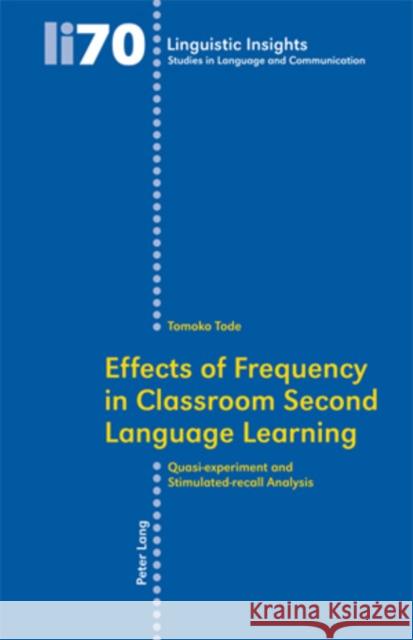Effects of Frequency in Classroom Second Language Learning: Quasi-Experiment and Stimulated-Recall Analysis » książka
Effects of Frequency in Classroom Second Language Learning: Quasi-Experiment and Stimulated-Recall Analysis
ISBN-13: 9783039116027 / Angielski / Miękka / 2008 / 195 str.
Effects of Frequency in Classroom Second Language Learning: Quasi-Experiment and Stimulated-Recall Analysis
ISBN-13: 9783039116027 / Angielski / Miękka / 2008 / 195 str.
(netto: 394,68 VAT: 5%)
Najniższa cena z 30 dni: 412,18
ok. 10-14 dni roboczych.
Darmowa dostawa!
The view of exemplar-based second language learning emphasizes the importance of frequency in learning grammar. According to this view, type frequency rather than token frequency contributes to learning generalized knowledge beyond item-based constructions. This book investigates how frequency in experiencing exemplars affects the learning of the English primary verb be by junior high school students in Japan. The study consists of a quasi-experiment and stimulated-recall analysis of the data. The quasi-experiment compares three kinds of output practice: practice with increased type frequency, practice with increased token frequency, and practice without increased frequency. The experiment also explores how the frequency effects relate to the extent of explicit knowledge about the target structures. In the stimulated-recall analysis, learners engaging in the type frequency practice and those engaging in the token frequency practice are compared in terms of thought processes employed while practicing. The book discusses how frequency promotes classroom second language learning by taking the role of awareness of form-meaning connections into consideration.











